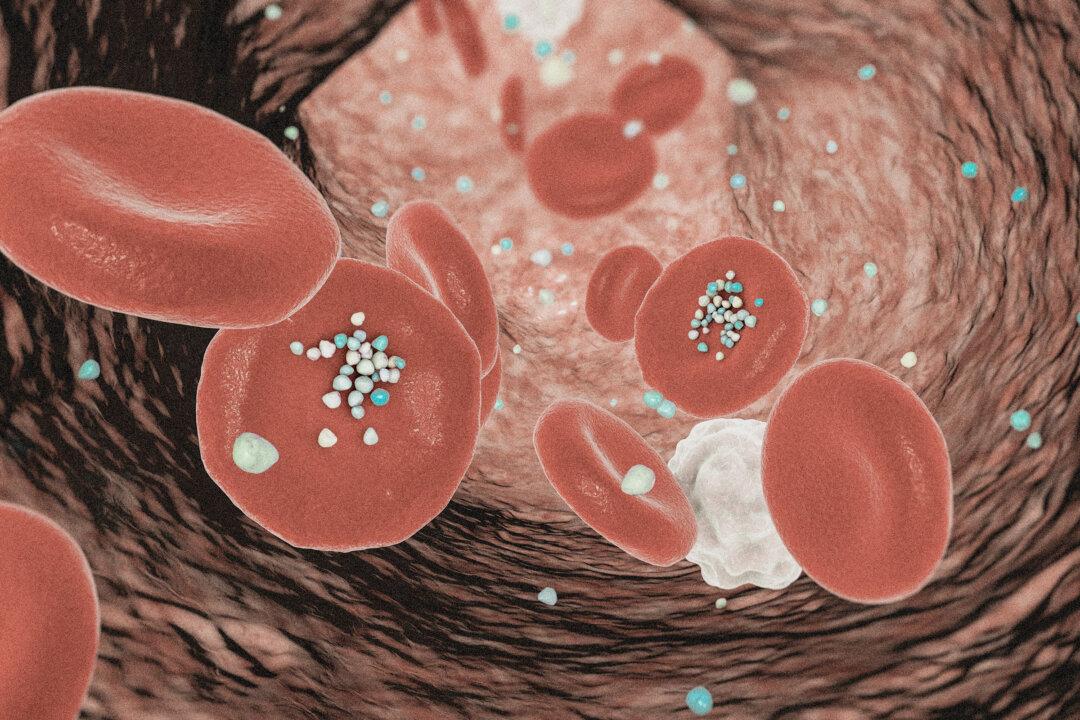New mothers who begin using hormonal contraceptives within a year of childbirth may face nearly double the risk of developing depression, according to a new study of more than 610,000 women.
Despite a nearly 50 percent increase in relative risk, experts urge caution, emphasizing that the actual absolute difference is minimal. This needs to be considered alongside the significant reproductive health benefits that contraception offers during the postpartum period.
Almost 50 Percent Increased Risk
In the study, recently published in JAMA Network Open, researchers investigated first-time mothers who gave birth between Jan. 1, 1997, and Dec. 31, 2022, excluding those with prior depression diagnoses or other health complications.Researchers examined national health records, and counted mothers to have depression if they were given a depression diagnosis or if they were prescribed antidepressants within 12 months of giving birth.
The data show that hormonal contraceptive use was linked with a 49 percent higher risk of depression compared to non-users.
Hormonal birth control can disrupt the body’s natural hormone balance after having a baby. According to psychologist Lilit Ayrapetyan, these contraceptives affect estrogen and progesterone, which in turn impact mood-regulating brain chemicals like serotonin and dopamine. When combined with the emotional challenges of becoming a mother, these hormonal disruptions may increase the risk of developing depression.
The depression risk for combined oral contraceptives was found to increase by 72 percent, while progestogen-only pills showed an initial reduced risk that increased later in the postpartum period. Non-pill birth control methods that combine hormones (like patches or rings) nearly doubled the risk of depression. The mini-pill (progestogen-only) initially seemed to lower depression risk, but that risk increased later after giving birth.
Postpartum depression is a common mental health condition that affects women after giving birth, with approximately 12 to 16 percent of women experiencing the condition within the first year after delivery.
The study also indicated that younger mothers, particularly those under 20, had a higher risk of depression associated with hormonal contraceptive use.
“We discovered that initiating hormonal contraceptives in the postpartum period is associated with an increased risk of developing depression,” the researchers wrote. “The earlier these contraceptives are started postpartum, the higher the risk of depression.”
Absolute Risk Is Still Low
Although hormonal birth control is associated with a heightened relative risk of depression, the actual difference in risk remains quite small. Specifically, approximately 1.5 out of every 100 women using hormonal contraceptives reported experiencing depression, compared to roughly 1.4 out of every 100 women not using these methods.Experts in Contention
According to Ayrapetyan, the major psychological adjustment required of motherhood, combined with physiological changes mothers might experience from hormonal contraceptives, may create a “perfect storm” of stressors that leads to depressive symptoms.Factors that can increase the risk of postpartum depression include having a previous history of mental health challenges, and sleep deprivation, “which is very common during the postpartum period,” as they also affect a woman’s hormones, Ayrapetyan said.
“Having limited social support can also exacerbate the psychological impact of hormonal changes,” she added.
Some signs suggesting depression might be due to hormonal contraceptive use include a “persistent sadness or a feeling of emptiness” that seems to coincide with starting contraceptives, Ayrapetyan said.
Others symptoms include significant changes in sleep patterns beyond the “normal” postpartum disruptions, loss of interest in activities once found enjoyable, feelings of worthlessness, and experiencing excessive guilt over parenting.
A more serious symptom, Ayrapetyan said, is thoughts of harming oneself or the baby. “Please seek immediate help if you experience this one,” she advised. “Help and support is available to you!”
Additionally, the study had a limitation that may affect the validity of the findings.
The study did not look into if these women had previous history of depression or antidepressant prescription use more than two years ago, and this could have altered the findings of the study, Reynolds-Wright said. Women who gave birth previously were also excluded.
The authors also concluded that “the incidence of depression post partum may be inflated by routine HC (hormonal contraceptive) initiation, which is important information to convey at postpartum contraceptive counseling.”
However, according to Reynolds-Wright, the study did not “convincingly” show that incidence of depression is higher since the antidepressants may be prescribed to treat other conditions, like anxiety disorders, obsessive-compulsive disorder, panic disorder, and not just depression, adding that recommendations of the study should be cautiously interpreted.







